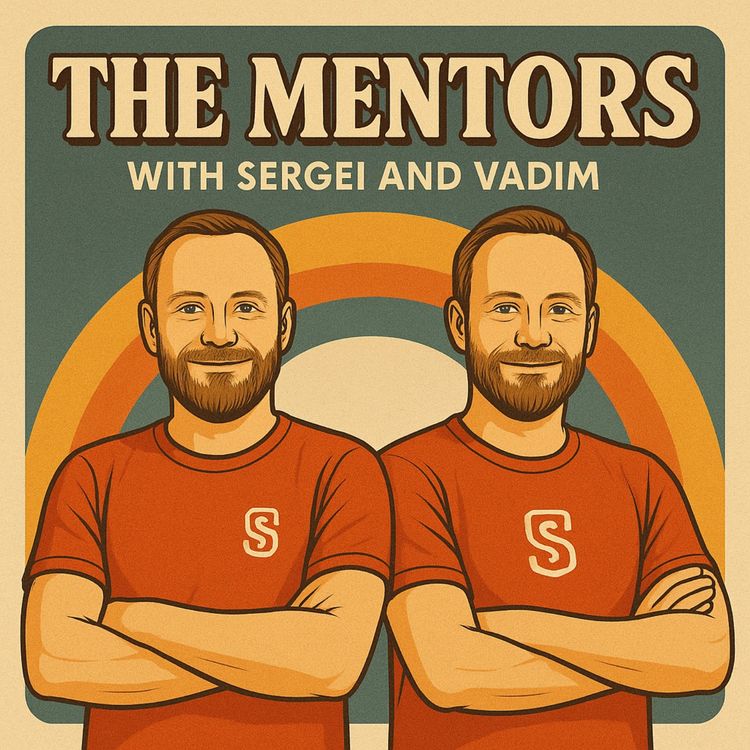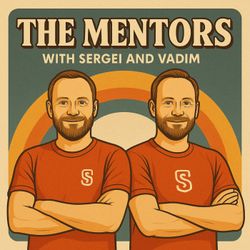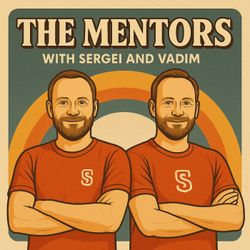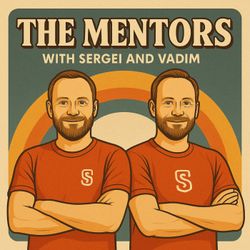Share

The Mentors
When To Seek Legal Help For Your Startup With David Postolski Of Gearhart Law
Every creator and business founder reaches a point where they need to lean on the advice of a legal professional. But how do you know when the time is right? At what point in the evolution of your venture do you need to consult a lawyer, and how do you make sure that you're being as resourceful and pragmatic as possible? We thought the best person to talk to about this was someone that truly cares about entrepreneurs, someone that left a massive law firm to join forces with a legal partner whose mission was aligned with his - to help inspire innovation by working with brilliant founders from inception to help them navigate complicated legal issues.
In our interview with David Postolski of Gearhart Law we dive into many of the same questions that first time entrepreneurs have when starting a business. The first half of the interview focuses on what to consider when thinking about Intellectual Property for your business, detailing what you need to do in the first year of your business and the costs you can expect around patents.
We then cover more common questions, like when you should incorporate, how to avoid personal liability, when to create founder agreements with your partners, and why you should never pay for an initial consultation with a startup lawyer. David speaks with us from the perspective of an entrepreneur to make sure that you limit your costs early on while avoiding major problems in the future.
More episodes
View all episodes

How to Build Practical AI Skills Employers Actually Want
32:02|Modern work feeds you two conflicting stories: On social media, it sounds like AI is replacing everything. Inside real companies, leaders are just trying to find one person who can think clearly, build simple workflows, and actually ship solutions.In this reboot of The Mentors, Vadim and Sergei share what they’re hearing directly from 14+ CEOs, VPs, and operators about how AI is actually being used inside modern businesses—and what that means for your career, especially if you’re early-stage or non-technical.They talk about the messy truth behind AI adoption, why “just managers” are at risk, what “being technical” really means if you don’t write code, and how to build practical AI and workflow skills that make you stand out instead of getting replaced. They also share early-career stories of automating their own work with simple tools (before AI was mainstream) and how that instantly changed how leaders perceived their value.If you’ve ever felt anxious scrolling LinkedIn or TikTok about AI and the future of work, this episode will help you zoom out, reframe the risk, and focus on what still matters: becoming the person in the room who can learn fast, simplify complexity, and deliver measurable results.Subscribe to The Mentors for real conversations with CEOs, operators, and educators about what’s actually happening in hiring, talent, and modern work - and how you can stay competitive as technology evolves.
How freeCodeCamp Is Creating Thousands Of Programmers With Only 12 Employees
31:05|When a founder decides to build an impact driven organization, at some point they have to make an important decision on whether to structure it as a for profit entity or a non-profit. While a for-profit can maximize financial upside to the founding team and shareholders, a non-profit by definition can focus more of its effort on the impact it wants to have in the world. In this week's episode bring back Darrell Silver, the founder and former CEO of Thinkful, a for-profit education venture, to talk about why the model of the non-profit freeCodeCamp is so innovative in its funding and impact model, and why he is now a major donor and supporter of the organization that was founded with a similar mission to his. In this rare interview, we got to dive into some of the nuances of how nonprofits are managed and how freeCodeCamp has been able to deliver 1.1 billion minutes of instruction with just a 12 person team by making their education model open source. We also discussed how people who want to improve their career prospects and pick up a technical skill can best decide whether to learn online for free or pay tuition for an instructor guided education experience if they can afford it. Tune in to hear our interview with Darrell Silver about the story and future of freeCodeCamp.If you want to support their work, you can donate as little as $5 here which will directly contribute to 250 hours of free education!
How An Engineer Turned Himself Into A Master Marketer And Successful Entrepreneur
49:44|Kevin Urrutia decided to teach himself to code while in college so that he could turn all the different business ideas he had into reality. Little did he know that after years of building apps and websites and trying idea after idea, he would need to completely change his mindset about how to get ideas off the ground to have his first entrepreneurial success.Kevin left his home in New York to go to Silicon Valley and work as a software engineer for Mint.com and later a little known startup called Zaarly where he would learn the power of SEO and marketing. After reading every marketing and sales book he could find, he moved back to start an online maid service called Maid Sailors. In this episode he talks about how his new found love for marketing helped him scale Maid Sailors to millions of dollars in revenue, and truly kicked off his entrepreneurial career helping him launch several more startups, including his digital marketing agency Voy Media.This show is brought to you by School16, a tech career accelerator for professionals interested in roles in Product, Marketing, Sales and Operations at top tech firms and startups.
What’s Next For The Mentors
07:03|In today's episode we're sharing an update on what's been happening with our own entrepreneurial venture, School16, and how our publishing schedule for The Mentors will change going forward.
How a SpaceX Engineer Launched a Rapidly Growing Consumer Health Startup
54:49|This week we got the chance to interview a former SpaceX Engineer and founder of biohacking startup Levels as part of a special podcast recording hosted by School16 in front of a live audience.In this episode, Josh Clemente told us about how he pushed his way into getting an opportunity to work at Tesla and then SpaceX, where he ended up leading the Life Support Systems team. He credits his time at SpaceX for teaching him how to think big and go after nearly impossible goals, and his time running his own general contracting business in college for giving him the confidence to start building a business that was going after a massive opportunity.Listen to find out how Josh came up with the idea for a continuous glucose monitoring technology that is being made available to anyone to help people avoid some of the most common and dangerous diseases. We also discuss how he built the right team to help him get his first customers, find investors, and start bringing it to the masses all in less than 2 years since he conceived it.
What You Should Learn Before Starting A Company
11:10|This is one of the most common questions we get from aspiring entrepreneurs. The answer, however, is less about what you should learn and more about how you should do it. Entrepreneurs come from almost every background imaginable, but one of the biggest contributors to founder success is previous experience with working on highly talented teams. Let's take the most famous example - the "PayPal Mafia." Companies like SpaceX, Yelp, Yammer, LinkedIn, and Square all came from individuals that were employees at PayPal. Some of them came from engineering, while others lead operations or sales teams, but the factor that separated them from other people starting companies at the same time was their experience working with and learning from other incredibly talented individuals.
The Power of Small Actions and an update to The Story of A Homeless Neuroscientist
09:15|This is a follow up to our recent episode titled The Story of A Homeless Neuroscientist and how one small act eventually resulted in a job offer. We often come up with reasons not to do something or to delay acting on an idea because of fear of failure or simply because we feel like we have other more important things to do. Entrepreneur Naval Ravikant once wisely said "inspiration is perishable - act on it immediately." Famous motivational speaker Tony Robbins uses the same technique to stay on top of the various business interests that he has. Whenever he's in a meeting he makes sure to act on at least one thing that's discussed immediately to insure that it gets done. This is because he knows from experience that if something is put off there's a big chance it'll never become a priority. In this episode we discuss how you can apply the same ideas to seemingly small actions this week that can have very impactful outcomes.
How To Impress Important People (Rebroadcast)
11:02|This rebroadcast episode was inspired by the growing opportunity to connect with sought after individuals that are more accessible than ever before as more people are working remotely in 2020. Finding a good mentor is hard but the real work is in keeping them. In today’s episode we talk about how you can impress important people in your life, be they a mentor, advisor, investor, or simply someone that’s further along than you.We give two specific examples of how our mentees have accomplished this by following up, following through, being solution oriented, and finding opportunities to add value instead of always asking for help.
How To Have A Strong Sense Of Self Worth
12:30|Our sense of self worth is constantly in flux, but it's important to learn how to control it to stay productive. This is in part because failure is a big part of the process and if you tie your worth to success or failure it's bound to become debilitating. Instead of worrying about outcomes that are outside of our control we should focus on actions that we can control. In this episode we discuss the following four techniques, tying each of them to a personal story:1) Getting outside encouragement2) Setting achievable goals3) Shifting your focus4) Finding ways to be helpful to others